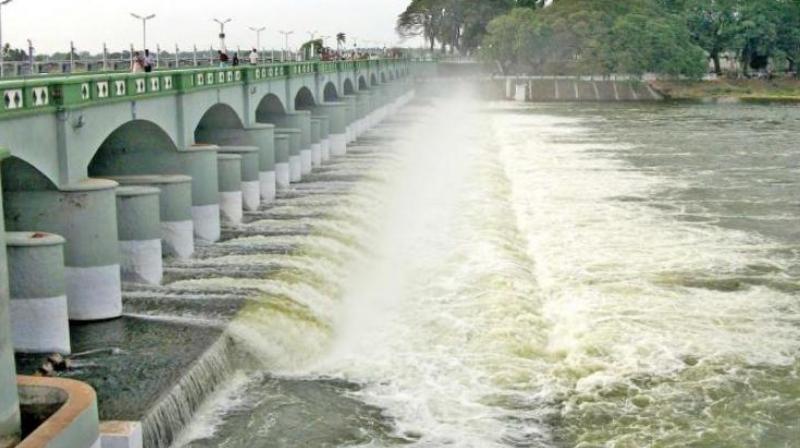Voice of dissent: After SC judgement, Bengaluru now on the brink of disaster!
Our city has been left in the lurch, so press the Panic Button, if you will.

K.V.Dhananjay, Advocate, Supreme Court
To put today’s Supreme Court judgment in the Cauvery River Water Dispute in perspective to Bengalureans, let me cite an illustration.
You have a large family. You decide to build a high rise to accommodate all of them and apply for permission. Authorities allow you to build six floors, which you violate, constructing 19. Your family jostles for space inside and when it won’t suffice, some 45% of them cluster along the sides of the structure. Authorities notice the violation and decide to raze down the building, sending you rushing to court. You omit to tell the Courts that you have already built 19 floors and the latter, in a moment of sympathy, makes a few calculations and decides to offer you relief by granting permission for 10 floors. Authorities are directed to enforce this and to keep watch over the building. Is this a verdict to be celebrated? Depends on what your lawyer told you. Were you informed that the building is now legal only to the extent of 6+4=10 floors? What happens to the remaining nine?
That is the situation Bengalureans find themselves in today after the Supreme Court’s judgment. Lawyers for the Karnataka government have welcomed today’s verdict, while the uninformed public and political party workers have resorted to celebrations at a few places. Reality is bound to hit us soon. Most lawyers are having a hard time digesting the fact that the Constitution of India expressly bars the apex court from settling inter-state river disputes, in keeping with Article 262. They fall under a different scheme.
The Central Government constituted the Cauvery River Water Dispute Tribunal in 1990 and issued its final judgment in February, 2007. In the current dispute between Karnataka, TN, Kerala and Puducherry, we consider only drinking water needs. A rule followed across the world says that only people living within the boundaries of the river basin are entitled to its water. Cities like Belagavi and Hubbali cannot claim water from the Cauvery, just as Bengaluru cannot demand water from the Mahadayi river which flows through the northern part of the state. Responsibility for the demands of specific cities and towns falls on the state government and are not recognized by the Tribunals. The Karnataka government had sought a large quantity of water for its drinking needs and the Tribunal, based on its calculations awarded it only 8.75 TMC from the Cauvery. All four states appealed to the Supreme Court and TN made numerous complaints about Karnataka failing to implement the order.
Bengaluru, Coorg, Mandya, Mysore, Hassan and the numerous other towns and villages were to make do with 8.75 TMC, but Bengaluru alone went on to draw 19 TMC annually. So now, while Bengaluru is already drawing 19 TMC, 45% of her population doesn’t have access to this water. The Supreme Court went on to say that more water must be awarded to Bengaluru, considering her immense growth and global status. The city has “increased” the drinking water share by 4.75 TMC, which, in keeping with the Tribunal’s order, brings the tally up to 13.5 TMC only for all towns, cities and villages in the Cauvery basin. For Bengaluru, this means a drastic cut in water supply so that other areas can also manage with this amount.
Which segment in Bengaluru will suffer? The slums, the poor, the middle classes. It appears that the government failed to inform the SC about the actual state of affairs – the SC verdict now brings the same quality of solution as the 19-floor building conundrum!
The Supreme Court cannot be blamed; this modification to the Tribunal order is an unprecedented move in Karnataka’s favour, although most of Bengaluru falls outside the purview of the Cauvery basin.
As a constitutional lawyer speaking without regard for the ramifications of the riparian dispute, I worry that the Supreme Court has opened up a Pandora’s Box by going against a constitutional injunction. India has 14 very large inter-state rivers and 44 medium-size water bodies. States that have followed Tribunal orders with diligence will now approach the apex court seeking reprieve.
One thing is for certain. Bengaluru is poised on the brink of disaster and the state government is to blame. Can I provide a solution to these woes? Honestly, I don’t have one and I doubt anybody else either. Our city has been left in the lurch, so press the Panic Button, if you will.

